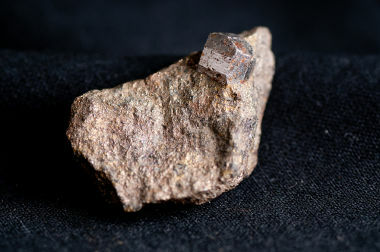Svante August Arrhenius was born in the year 1859, in Sweden. In 1876, he entered the University of Uppsala. This chemist became most famous for his Ionic Dissociation Theory. In fact, this was the theme of his doctoral thesis, defended in 1884.
Arrhenius began in 1881 to carry out numerous experiments related to the passage of electric current through aqueous solutions and, on May 17, 1883, based in the observed results, he arrived at the mentioned theory, in which he formulated the hypothesis that electrical conductivity was related to the presence of ions in the solutions.
When defending your thesis, with the title of Research on galvanic conductivity, which was actually a new theory, there was a discussion with the examiners, which lasted for four hours. This was to be expected, after all, his ideas about the existence of ions went against the atomic model accepted at the time, which was Dalton's, who spoke of neutral and indivisible particles. The examiners decided to grant him the title of doctor, however, not because of the approval of his thesis - because she received the minimum grade for not being turned down - but because he was a good student, with great grades.
This did not make him discouraged, as from then on he began to devote himself to the study of these electrolyte solutions. The chemist Wilhelm Friedrich Ostwald (1853-1932) helped him by getting him a scholarship. So Arrhenius continued to work with Ostwald and Jacobus Henricus Van’t Hoff (1852-1911), two renowned chemists.
Even with their support, its results continued to be heavily opposed by the scientific community.
In time, Arrhenius obtained the position of professor at the Stockholm Institute. Later, he got the chair, that is, he became a full professor of a university discipline. However, they gave him this role without much enthusiasm, as they felt he was unprepared. But something that helped him get the chair was that his dissociation theory was starting to be accepted - even the Munsen Society chose Arrhenius as its honorary member because of this theory.
In 1895 he was appointed professor at the University of Stockholm; and two years later he became the dean of that institution. In 1902 he received the Davy Medal from the Real Society; and, in 1903, he received the greatest honor a scientist could ever receive: the Nobel Prize in Chemistry, for his much-criticized doctoral thesis.
But really this award was very deserved, after all the theory of ionic dissociation was very important. She explained a large number of known phenomena, contributed to the development of electronic theories of matter, and caused the development of several lines of research, including collaborating to establish the scientific basis of chemistry analytical. In addition, further studies by Arrhenius, on the nature of ions in solutions ionic or electrolytic, led to the elaboration of definitions of the inorganic functions of acids, bases and salts.
Arrhenius died in 1927 in Stockholm.
By Jennifer Fogaça
Graduated in Chemistry

